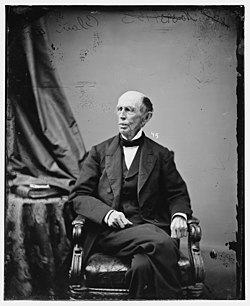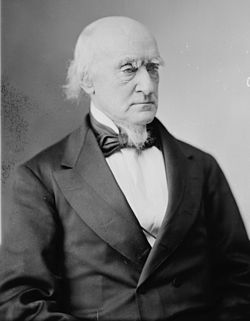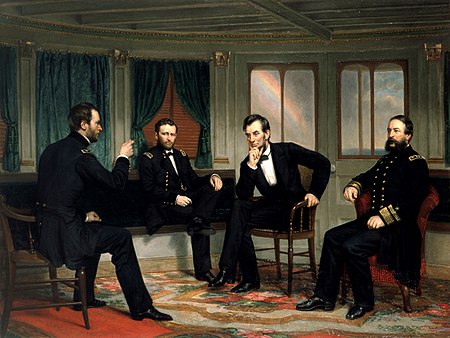As we have discussed on this blog before, slavery was the main issue that caused the Deep South States to secede, but secession did not necessarily mean war. This is a major misunderstanding about the Civil War today. When the North was considering whether or not to attack the South, the question was no longer about slavery. The question was whether or not the Southern states had a right to be allowed to leave the Union peacefully. The South viewed the United States as a confederation in which the states joined together for mutual protection. They joined freely, so they thought they could leave freely. However, the North believed that the states surrendered their sovereignty and could never regain it. It was this difference of understanding that caused the South to fight for freedom and the North to preserve the indissolvable Union.
Constitution
To start off, the U.S. Constitution does not clearly permit or forbid secession. The other founding documents convey contradictory impressions. When Virginia joined the Union they specifically reserved the right to secede. However, the Northwest Ordinance, an important bill passed by Congress regarding adding new states to the Union, forbade secession. There were differences of opinion regarding this right before the war, but as we will see, they were not clearly divided between North and South.
History of Secession
The 1860s were not the first time that states had threatened to leave the Union. It had also happened during several crises since the founding of America. At those times it had been debated whether the right to secede was retained by the states. What is interesting though is that several times it was not the South, but also the North that was arguing for secession. In the years directly proceeding the war the abolitionists urged their states to leave the Union because they thought it was wrong to be in a Union that also contained slaveholders. During one of their meetings in 1844:
... it was decided ... that fidelity to the cause of human freedom, hatred of oppression, sympathy for those who are held in chains and slavery in this republic, and allegiance to God, require that the existing national compact should be instantly dissolved; that secession from the government is a religious and political duty; that the motto inscribed on the banner of Freedom should be, NO UNION WITH SLAVEHOLDERS; 1
These were the same men that in 1861 declared that they must fight to preserve the Union.
State Sovereignty
The debate over the legitimacy of secession really comes down to a different view of state sovereignty. Is the Union is a collection of states joined together for the common good, and still reserving much sovereignty to themselves, or did the states just become departments of the federal government? The Civil War resulted in a huge lose of the states' power, ignoring the Constitution and what the founders intended. The states were constitutionally intended to provide a check on the federal government and were to retain all power that they did not specifically delegate to the federal government. After the Southern states were defeated in their attempt to leave the Union, they were not let back in until they surrendered many of their original rights – even though the North claimed they had not even really left in the first place.
Bibically
One of the applications of the Bible to civil government that was made by the Reformers was the doctrine of interposition. This is the idea that the when the greater civil magistrates become wicked and tyrannical, the lesser civil magistrates are to lead the people to remove them. This is similar to what the South was trying to do in their secession. The state officials voted to leave the Union because it was trying to abolish the institution of slavery which they believed was ordained by God, and they formed a new union that would better fulfill the role of civil government.
Conclusion
While slavery served as a catalist, it did not cause the war. The war was fought over state's rights. Did states have the right to regulate their own laws and to leave the Union when it was no longer beneficial to them? As we will see later, the upper south did not secede because they thought Lincoln would abolish slavery. They seceded because they were ordered to attack their brethren who had left the Union.
I will close with a quote from Jefferson Davis after the war:
Secession ... is to be justified upon the basis that the States are sovereign. There was a time when none denied it. I hope the time may come again, when a better comprehension of the theory of our Government, and the inalienable rights of the people of the States, will prevent any one from denying that each State is a sovereign, and thus may reclaim the grants which it has made to any agent whomsoever.
 |
| Jefferson Davis |
1. The Constitution A Pro-Slavery Compact (New York: American Anti-Slavery Society, 1845) p. 101 Source.















